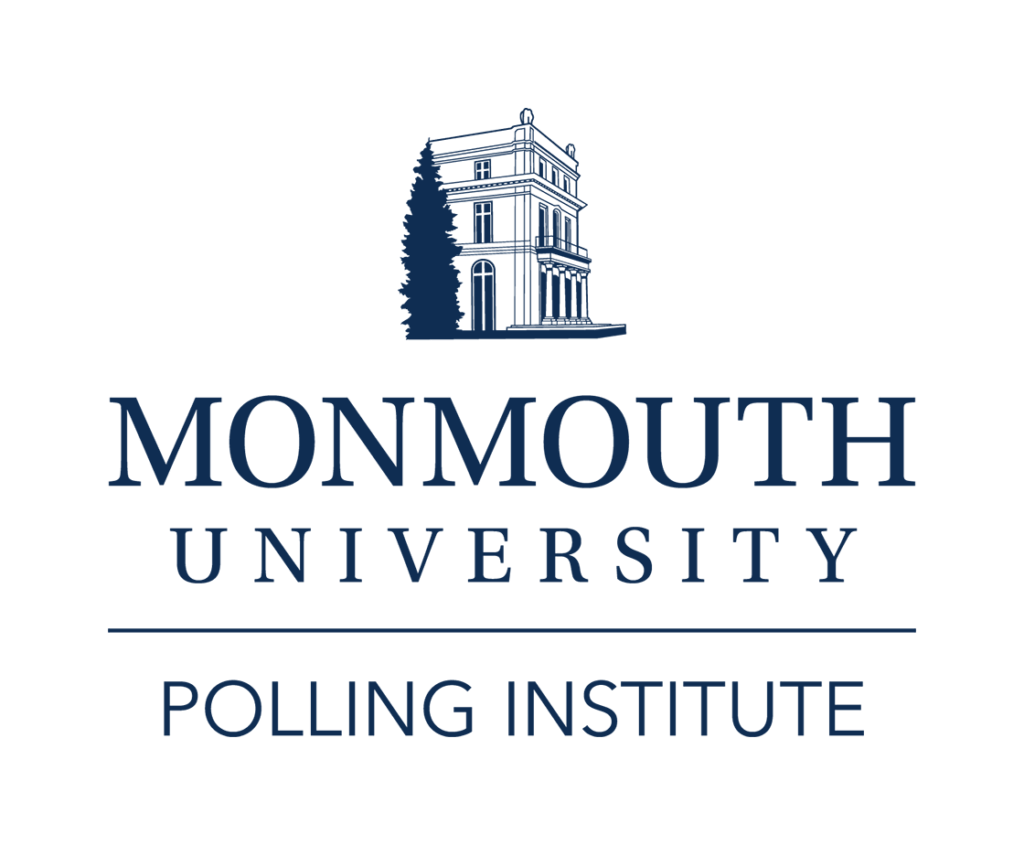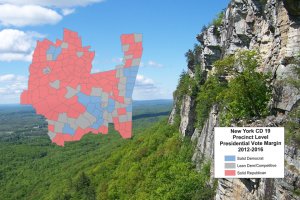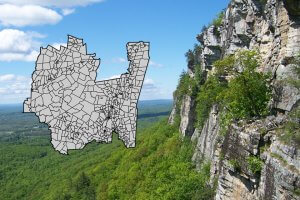West Long Branch, NJ – Donald Trump is positioned for a sweeping primary win in his home state of New York according to the Monmouth University Poll . He currently has the support of an outright majority of likely voters, a margin that suggests he could win nearly every delegate awarded by the state.
Currently, 52% of likely Republican primary voters in New York support Trump compared to 25% who support John Kasich and 17% who will vote for Ted Cruz. Trump has more than half the vote in New York City and Long Island (58%) and Upstate New York (52%), and nearly half in Western New York (47%). Kasich does slightly better upstate (28%) and west (26%) than he does in NYC/LI (22%). Cruz does slightly better in the west (21%) than he does upstate (15%) and in NYC/LI (14%).
“If this result holds in every single congressional district, Trump will walk away with nearly all of New York State’s delegates,” said Patrick Murray, director of the independent Monmouth University Polling Institute. According to the poll, about one-third of the state’s likely Republican electorate will come from the 16 Congressional districts covering New York City and Long Island, but this region accounts for a majority of the state’s 95 delegates. Any candidate who wins an outright majority – i.e. 50% plus one – in any district wins all three delegates allocated to that district.
When New York Republicans were asked about some of Trump’s controversial statements – including punishing women who have abortions and placing nuclear weapons in Asia – most voters (57%) say these comments have no impact on how they will vote in the April 19 primary. However, 29% say these kinds of statements make them less likely to support Trump and just 7% say they are more likely to support Trump because of his comments. The Monmouth University Poll also found that most GOP voters (72%) say that they feel neither positive nor negative about the fact that Trump is a fellow New Yorker, while 14% say it makes them proud and 13% feel embarrassed by the association.
Despite Trump’s commanding lead in the poll, he is not the candidate most likely to hold together New York’s GOP base against the leading Democratic candidate. That honor goes to Kasich, who would get 81% of Republican primary voters to stick with him in a November match-up against Hillary Clinton, while just 3% would vote for the Democrat, 4% would vote for another candidate and 4% would not vote for president. If Trump was the nominee, 70% of New York Republicans say they would support him over his fellow New Yorker, 9% would vote for Clinton, 12% would vote for another candidate and 5% would not vote. If Cruz was the nominee, 66% would support him in November, 10% would vote for Clinton, 13% would vote for another candidate and 8% would not vote.
“It is interesting that Kasich would be a stronger nominee in Trump’s home state, but it is purely academic. There is almost no probability that any Republican would be able to win New York’s electoral votes,” said Murray.
There is still some time for GOP voters to change their minds. Four-in-ten (40%) report that their primary choice is already locked in while 34% say they have a strong preference but are willing to consider other candidates. Another 12% have only a slight preference and 14% say they are really undecided at this point.
The Monmouth University Poll was conducted by telephone from April 3 to 5, 2016 with 302 New York voters likely to vote in the Republican presidential primary. This sample as a margin of error of ± 5.6 percent. The poll was conducted by the Monmouth University Polling Institute in West Long Branch, NJ.
DATA TABLES
The questions referred to in this release are as follows:
(* Some columns may not add to 100% due to rounding.)
1. If the Republican primary election for president was today, would you vote for – [NAMES WERE ROTATED]
| April 2016 | |
| Donald Trump | 52% |
| John Kasich | 25% |
| Ted Cruz | 17% |
| (VOL) Other | 0% |
| (VOL) Undecided | 6% |
| (n) | (302) |
2. Which of the following best describes where your decision stands at this moment: I am completely decided on which candidate I will support, I have a strong preference right now but I am willing to consider other candidates, I have a slight preference among a group of candidates I like, or I am really undecided among a number of candidates?
| April 2016 | |
| Already voted | 2% |
| Completely decided | 38% |
| Strong preference | 34% |
| Slight preference | 12% |
| Undecided | 14% |
[QUESTIONS 3 THROUGH 5 WERE ROTATED]
3. If Donald Trump became the Republican nominee and Hillary Clinton became the Democratic nominee, who would you vote for in the general election in November – Trump or Clinton or an independent candidate, or would you not vote for president?
| April 2016 | |
| Donald Trump | 70% |
| Hillary Clinton | 9% |
| Independent candidate | 12% |
| Would not vote | 5% |
| (VOL) Undecided | 4% |
4. If Ted Cruz became the Republican nominee and Hillary Clinton became the Democratic nominee, who would you vote for in the general election in November – Cruz or Clinton or an independent candidate, or would you not vote for president?
| April 2016 | |
| Ted Cruz | 66% |
| Hillary Clinton | 10% |
| Independent candidate | 13% |
| Would not vote | 8% |
| (VOL) Undecided | 4% |
5. If John Kasich became the Republican nominee and Hillary Clinton became the Democratic nominee, who would you vote for in the general election in November – Kasich or Clinton or an independent candidate, or would you not vote for president?
| April 2016 | |
| John Kasich | 81% |
| Hillary Clinton | 3% |
| Independent candidate | 4% |
| Would not vote | 4% |
| (VOL) Undecided | 7% |
6. Does it make you feel more proud or more embarrassed that Donald Trump is a fellow New Yorker – or don’t you think about it like that?
| April 2016 | |
| More proud | 14% |
| More embarrassed | 13% |
| Don’t think about it like that | 72% |
| (VOL) Don’t know | 1% |
7. Donald Trump has been known to make controversial statements, such as punishing women who have illegal abortions and replacing U.S. military forces in Asia with nuclear weapons. Does the fact he makes these kinds of statements make you more likely or less likely to support Trump for president or does this have no impact on your vote?
| April 2016 | |
| More likely | 7% |
| Less likely | 29% |
| No impact | 57% |
| (VOL) Depends | 3% |
| (VOL) Don’t know | 4% |
The Monmouth University Poll was sponsored and conducted by the Monmouth University Polling Institute from April 3 to 5, 2016 with a statewide random sample of New York voters drawn from a list of registered Republican voters, who participated in a primary election in 2012 or 2014 or voted in both of the last two general elections or have registered since 2014, and indicate they will vote in the presidential primary on April 19, 2016. The total sample of 302 likely voters includes 201 contacted by a live interviewer on a landline telephone and 101 contacted by a live interviewer on a cell phone, in English. Monmouth is responsible for all aspects of the survey design, data weighting and analysis. Final sample is weighted for age and gender based on state registration list information on the pool of voters who participate in primary elections. Data collection support provided by Braun Research (field) and Aristotle (voter list). For results based on the total sample, one can say with 95% confidence that the error attributable to sampling has a maximum margin of plus or minus 5.6 percentage points (unadjusted for sample design). Sampling error can be larger for sub-groups (see table below). In addition to sampling error, one should bear in mind that question wording and practical difficulties in conducting surveys can introduce error or bias into the findings of opinion polls.
| POLL DEMOGRAPHICS (weighted) | ||
| LIKELY REPUBLICAN PRIMARY VOTERS | ||
| 52% Male | 14% 18-34 | 93% White |
| 48% Female | 26% 35-49 |
1% Black |
| 35% 50-64 |
1% Hispanic | |
| 25% 65+ |
4% Other | |
Click on pdf file link below for full methodology and results by key demographic groups.




